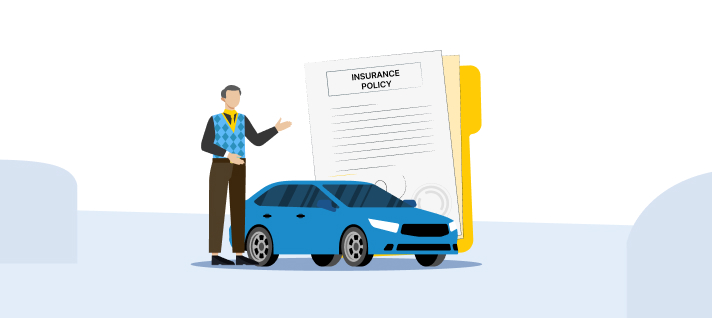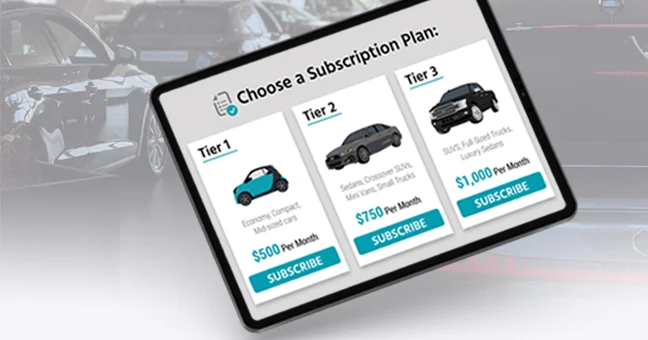Car insurance deductibles—ever heard of them? If not, you’re not alone. Deductibles can be a confusing aspect of car insurance, but understanding them is essential for managing your policy effectively. They play a big role in determining your premium costs and what you’ll pay when filing a claim. Let’s break it down step by step so you’ll know exactly what to expect.
The Basics of Car Insurance Deductibles
Definition of a Deductible
A car insurance deductible is the amount you agree to pay out of pocket before your insurance covers the rest of the costs in a claim. Think of it as your share of the financial responsibility when something goes wrong.
How Deductibles Work in an Insurance Claim
Here’s a quick example: If you have a $500 deductible and file a claim for $2,000 in damages, you’ll pay $500, and your insurer will cover the remaining $1,500.
Types of Deductibles in Car Insurance
Deductibles vary based on your coverage type—collision, comprehensive, or uninsured motorist. Understanding these categories is crucial for picking the right policy.
Common Types of Car Insurance Coverage with Deductibles
Collision Coverage
This covers damage to your car from accidents, whether it’s with another vehicle or a stationary object like a pole. Deductibles typically apply here.
Comprehensive Coverage
Comprehensive covers non-collision events such as theft, vandalism, or natural disasters. These claims also often require a deductible.
Uninsured/Underinsured Motorist Coverage
If an uninsured driver hits you, this coverage can help. Depending on your policy, deductibles may or may not apply.
Choosing the Right Deductible Amount
Factors to Consider When Selecting a Deductible
When choosing a deductible, think about your budget, driving habits, and risk tolerance. A higher deductible means lower premiums but more out-of-pocket costs if you file a claim.
High Deductible vs. Low Deductible: Pros and Cons
- High Deductible: Great for saving on premiums but risky for frequent claims.
- Low Deductible: Offers peace of mind but higher monthly costs.
Impact of Deductibles on Premium Costs
How Deductibles Influence Your Monthly Premiums
Insurance companies calculate premiums based on risk. Higher deductibles reduce their risk, resulting in lower premiums for you.
Balancing Savings with Potential Out-of-Pocket Costs
It’s a balancing act. Save on premiums now, but be prepared for larger expenses later if you need to file a claim.
Scenarios Where Deductibles Apply
When You File a Claim for an Accident
Deductibles are almost always required for collision claims, whether it’s a minor fender bender or a major accident.
Cases of Theft, Vandalism, or Natural Disasters
For comprehensive claims, deductibles also come into play. If your car gets stolen or damaged by hail, expect to pay your share.
Understanding Deductible Limits
Per-Claim Deductibles
Most car insurance deductibles are per-claim, meaning you pay them every time you file a new claim.
Annual Deductibles
Some policies, though rare, may have an annual deductible, which applies only once per year.
Situations Where Deductibles Don’t Apply
Claims That Waive Deductibles
Certain policies waive deductibles for specific claims, such as windshield repairs or not-at-fault accidents.
Liability Claims and Other Exemptions
Liability coverage, which pays for damages to others, typically doesn’t require a deductible.
How to Pay Your Deductible
Paying Deductibles Directly to Repair Shops
In most cases, repair shops collect the deductible directly, and the insurer covers the remaining costs.
Handling Deductibles in Cash Settlements
If you opt for a cash settlement, you’ll need to pay the deductible upfront before receiving the remaining balance.
Tips for Managing Deductibles Effectively
Building an Emergency Fund for Unexpected Claims
Having a small savings cushion can help cover your deductible without stress when accidents happen.
Regularly Reviewing and Adjusting Your Deductible
Your financial situation may change, so revisit your policy to ensure your deductible still makes sense.
Myths and Misconceptions About Deductibles
“Higher Deductibles Always Save Money”
Not always true. If you file frequent claims, a lower deductible could save you more in the long run.
“Deductibles Must Be Paid Upfront”
This depends on the insurer and situation. Some repair shops may bill you later for your deductible.
How to Lower Your Deductible Costs
Discounts and Incentives from Insurers
Many insurers offer discounts for safe driving, bundling policies, or installing anti-theft devices.
Safe Driving Rewards Programs
Enroll in programs that reward good driving habits with deductible reductions over time.
Comparing Deductible Options Across Providers
Importance of Shopping Around
Not all policies are created equal. Compare multiple providers to find the deductible structure that works best for you.
Evaluating Deductible Terms in Policies
Carefully read the fine print to understand when and how deductibles apply.
Real-Life Examples of Deductible Scenarios
Minor Accidents vs. Major Collisions
In small claims, a higher deductible might make it pointless to file, while in major claims, it’s worth it.
Weather-Related Claims
Storm damage, flooding, or falling trees are common scenarios where comprehensive coverage deductibles apply.
Conclusion
Car insurance deductibles can feel like a tricky puzzle, but understanding them helps you make informed decisions. By weighing the pros and cons, choosing the right deductible amount, and managing your policy wisely, you can save money and avoid surprises when filing claims.
FAQs
- How do deductibles affect my car insurance claim?
Deductibles determine how much you pay out of pocket before your insurer steps in to cover the rest of the claim. - Can I change my deductible after purchasing a policy?
Yes, most insurers allow you to adjust your deductible mid-policy, though it may affect your premium. - Is it better to choose a higher or lower deductible?
It depends on your financial situation and risk tolerance. A higher deductible saves on premiums, while a lower one reduces out-of-pocket expenses during claims. - Are there insurance policies without deductibles?
Some insurers offer no-deductible policies, but they typically come with higher premiums. - What happens if I can’t afford to pay my deductible?
In some cases, repair shops may offer payment plans, or you might need to delay repairs until you can cover the cost.




